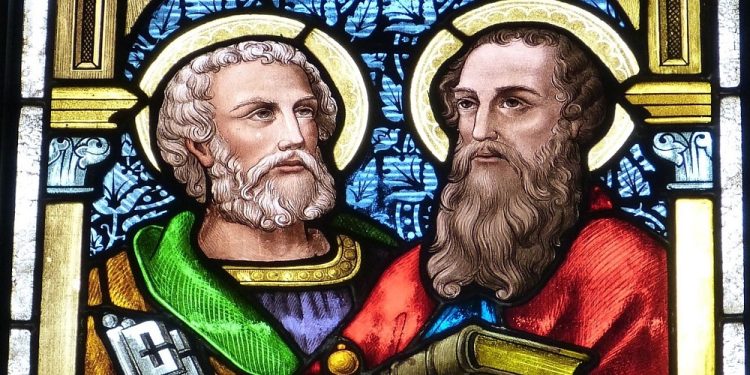
Feast of Saints Peter and Paul
The Feasts of Saints Peter and Paul is a liturgical feast in honor of the martyrdom of the apostles Saint Peter and Saint Paul. This day is observed on June 29th and dates back to the early days of Christianity. The date for this holiday was selected because it is believed to be either the anniversary of their death or the day on which their relics were translated—or moved from one location to another.
In Eastern Christian Tradition
In Eastern Orthodox and some Eastern Catholic traditions, this feast marks the end of the Apostles’ Fast. It is a day that does not require mandatory attendance. One can attend Vespers on the eve of this day and the Divine Liturgy on the morning of the day.
In Western Christian Tradition
The day is a solemnity in the General Roman Calendar and is a Holy Day of Obligation in the Latin Church. In the U.S. and Canada, it is not observed as a Holy Day of Obligation, but it is in England, Scotland, and Wales. In the Lutheran tradition, the day has the rank of a Lesser Festival.
Interesting Facts About Saints Peter & Paul
Below are some interesting facts for those wanting to observe this holiday and understand the origins and history of this liturgical feast better.
Peter & Paul Were Apostles in Rome
Although the Gospel had already reached Rome, Peter and Paul felt it necessary to journey there and provide the Christian church in the city with apostolic leadership. Paul arrived first, and Peter likely arrived at some point during the early 60s.
Both Peter & Paul Became Martyrs in Rome
During the reign of Nero in the mid-60s, Paul was executed first, followed by Peter. Since Paul was a citizen of Rome, he was given the more merciful death of being beheaded. Peter was not a citizen of Rome, so he was not beheaded but was instead crucified. Because he did not feel worthy to die in the same manner as Jesus Christ, he requested to be crucified upside down.
How To Observe The Feasts of Saints Peter and Paul
Since Saints Peter and Paul are patron saints of Rome, this is an important holiday in that city. It is observed with religious ceremonies led by the Pope of the Catholic Church, and there are often other celebrations in the city, including entertainment activities, fairs, and even fireworks.
For many Christians, this liturgical feast day is a good time to reflect on the historical roots of their theological traditions. It is also a good time to celebrate individuals who dedicated themselves to faith and the search for truth.








